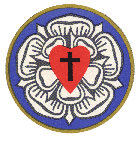Early history
The Lutheran Church in Singapore shares its early history with the Lutheran Church in Malaysia and Singapore (LCMS). In 1960, the American Lutheran mission in Malaya built a church at Duke's Road in Bukit Timah together with two other small Lutheran congregations from the Tamil Evangelical Lutheran Church and the Huria Kristen Batak Protestant in Singapore. Worship services in English, Chinese, Tamil and Batak were held in the church. With the onset of the Indonesia–Malaysia confrontation, many of the Batak members returned to Indonesia in 1963 and the remaining Batak parishioners decided to worship at the Methodist Church in Short Street. [3]
In 1963, a second congregation was established in Queenstown and the mission was able to obtain one of the six religious sites allocated in Queenstown through the help of a member of the Batak congregation. [3] The congregations in Singapore were grouped as the Singapore District, one of the three constituent districts of the LCMS.
Towards autonomy
By 1973, the then President of the LCMS, Dr. Carl Fisher raised the question of whether the Lutheran churches in Singapore would operate as a national church separate from the LCMS. The matter was not pursued further until 1984, when the matter was brought up again during a meeting with the Singapore District Council of the LCMS. Even then, this matter was again not pursued further.
In February 1990, the issue of an independent Lutheran Church in Singapore was again brought into discussion by the Executive Council of the LCMS. This time the issue was given more serious thought, particularly since it was noted that the clergy representing the Singapore District in the LCMS' Executive Council were both not Singaporean citizens. One of the results of this discussion was the establishment of a Restructuring Committee to study the restructuring of the Lutheran Church in Malaysia and Singapore. Each district of the LCMS was also to form its own ad hoc committee to study the matter. [3]
A meeting was convened on the 1st and 2 April 1991 as the LCMS Restructuring Consultation in Port Dickson, Malaysia to present the combined studies and recommendations. It was agreed in principle that the Singapore District would function as a fully autonomous Singaporean Lutheran Church, working side by side with her Malaysian counterpart. A ten-year time frame was adopted in which the Lutheran Church in Singapore and the Lutheran Church in Malaysia would initially be re-organised as two synods within one Church organisation and move towards independence as two national churches by 2001. [3]

